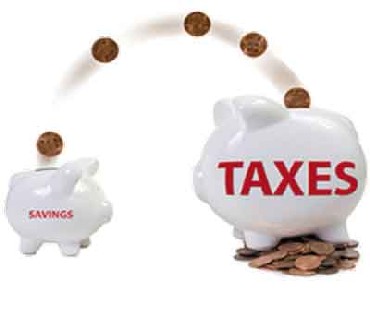
Kolkata resident Deepak Kumar Agarwal, director of Suvridhi Capital Markets, says his sister wanted to buy a house in South Kolkata.
She is a housewife (earns from interest income), has a Permanent Account Number (PAN) and files returns regularly.
After negotiation, the final price was fixed at Rs 68 lakh and an advance of Rs 5 lakh was paid.
Then, a chartered accountant advised her to deduct 20 per cent of the apartment value as Tax Deducted at Source (TDS, Rs 13.6 lakh), as the seller was a non-resident Indian (NRI).
...

He said she should then take the seller’s Tax Deduction and Collection Account Number (TAN) and deposit the tax within the stipulated time with the income tax (I-T) department.
However, the seller's chartered accountant advised something else. And before a solution could be reached, the seller had to return.
Agarwal’s sister does not know if the deal will go through. She can now only think of cancelling the deal.
Vaibhav Sankla, director at tax consultancy firm H&R Block, says in such cases the process of TDS is complicated.
...

Normally, TDS rules are applicable only if you are a business entity. However, the rule is applicable even for rent being paid to an NRI for occupying his/her house.
“If a house owner is an NRI, the tenant should deduct 30 per cent TDS from the rent before paying it.
And, submit that amount with the tax department, which the house owner can claim as a refund when he files his tax returns.
Recovering tax from NRIs is difficult; hence, the onus of deducting tax shifts to residents who transact with NRIs, irrespective of being an individual or a business entity,” explains Sankla.
...

This apart, there are many rules that can confuse individual payers. Here are some:
TDS on property sale
Under Section 194(1A), a TDS of one per cent was introduced in the Union Budget on property sales of more than Rs 50 lakh.
This is applicable even if the seller is an Indian resident. If he happens to be an NRI, the TDS increases to 20 or 30 per cent, depending on the period the property was held.
“If the property was held for the long term, of more than three years, the TDS rate will be 20 per cent. If held for the short term or less than three years, the TDS will be 30 per cent,” says Sankla.
So, if you buy a property worth Rs 1 crore held for more than three years, you will pay only Rs 80 lakh to the seller and deposit the remaining Rs 20 lakh as TDS.
The seller can later claim a refund for it when he files I-T returns. Most taxpayers are confused as to how much TDS is applicable and when.
...

Computation of holding period
Typically, what happens is that you book an under- construction property and some years later, you get possession. A little later, you register it.
As explained earlier, the long-term holding period for a property is three years. However, there is no clarity on how to calculate three years for an under-construction property.
Sankla of H&R Block says some people sell such properties immediately on registration or possession, if the time lapse between the booking and property sale is three years.
However, they might be charged a short-term capital gains tax for such a transaction if the I-T department computes the holding period from date of possession.
There have been litigations on this but final orders differ on a case-to-case basis.
...

How notional rent is determined
Say, you own more than one house property and if the second property is not let out, it is assumed to be earning a notional rent.
For computation of notional rent, the higher of the municipal value and the fair rent is used.
Further, there is an additional concept of standard rent (if the Rent Control Act is applicable) which can be invoked in certain case.
Usually, the annual value of a property is deemed to be the fair market value or the actual rent received or receivable, whichever is higher.
Says Suresh Surana, founder of RSM Astute Consulting, “From an individual's perspective, the computation of house property income is difficult due to the complicated mechanism prescribed.
Further, the determination of the fair rent, as is prevalent for similar property in the same or similar locality, is subjective as factors like the age of the property, its condition and so on, also have to be considered. This subjectivity in the determination of fair value leads to increased litigation.”
....

Investing long-term gains from property
It is said that you can save tax on the sale of house property if you use the proceeds to buy another property or if you invest in bonds qualifying for tax benefits under Section 54EC.
Gautam Nayak, partner at CNK & Associates LLP, says if you invest the long-term capital gains earned from one house property into another one, whether you get tax benefits for buying only one house property from the proceeds or get the same even if you bought two house properties is not clear.
Additionally, if you bought two adjacent properties from the sale proceeds, will be it looked at as one house or two? These are all grey areas.
There are such complexities even in the case of financial assets.
...

Capital gains or business income
Surana says that an active equity portfolio has chances of being taxed as business income instead of capital gains.
Business incomes are taxed at the rate of 30 per cent.
The gains from sale of shares held for more than one year are tax exempt. Gains from share held for less than one year are taxed at 15 per cent.
Most don't understand this and rush to make quick gains on equity. This is typically seen in times of initial public offerings (IPOs), where people want to exit the stock on listing.
“The definition of business in taxation is very wide. The department will treat such investment transactions as 'adventure in the nature of trade / commerce', covered within the purview of 'business income',” Surana says.
The department can use this particular clause when there is a high frequency of trades (again 'high' is a subjective matter) and if funds were borrowed to invest.
...

Tax deduction when changing jobs
Say you have an income of Rs 6 lakh in company A and you show investments of Rs 1 lakh.
The company taxes you at 10 per cent or deducts Rs 30,000 as TDS, as you fall in the Rs 2-5 lakh income bracket after the investments.
Let’s assume you move to another company, B, in the middle of the financial year and your salary is Rs 8 lakh. You show investments of Rs 1 lakh.
The company deducts Rs 70,000 as TDS from the remaining Rs 7 lakh salary (10 per cent of Rs 3 lakh in Rs 2-5 lakh bracket and 20 per cent of Rs 2 lakh in the Rs 5-10 lakh bracket).
Total tax paid by way of TDS = Rs 1 lakh. “But the investment of Rs 1 lakh should be deducted from the total annual salary, which should be Rs 14 lakh.
That means the person's taxable income should be Rs 13 lakh and the annual income tax should be 10 per cent on Rs 3 lakh + 20 per cent on Rs 5 lakh (Rs 5-10 lakh bracket) + 30 per cent on Rs 3 lakh (on income above Rs 10 lakh) = Rs 2.20 lakh (30,000 + 1,00,000 + 90,000).
This means the person should pay another Rs 1.20 lakh as income tax. Most individual taxpayers are confused over this,” says Nayak of CNK & Associates.
...

Tax on provident fund
Nayak adds there is also confusion over who is supposed to pay a tax on withdrawal from the Employees Provident Fund (EPF).
Say you change jobs and also transfer your EPF balance. There will be no tax on withdrawal from the EPF account if you have completed five years of continuous service.
However, if the EPF balance wasn't transferred, you need to complete five years of service at the second company to be able to withdraw EPF free of tax.
Similarly, if you took a break between two jobs but transferred the EPF balance once you took up the second job, then also you should have five years of service at the latter or five years of continuous service after the break.
...

Self-employed should deduct TDS
Surana of RSM Astute says under Section 48, any self- employed professional who makes a payment to any other professional or employees or as lease rent should deduct TDS or the entire expense will be disallowed. Such amounts will be added and taxed as normal income at the slab rate.